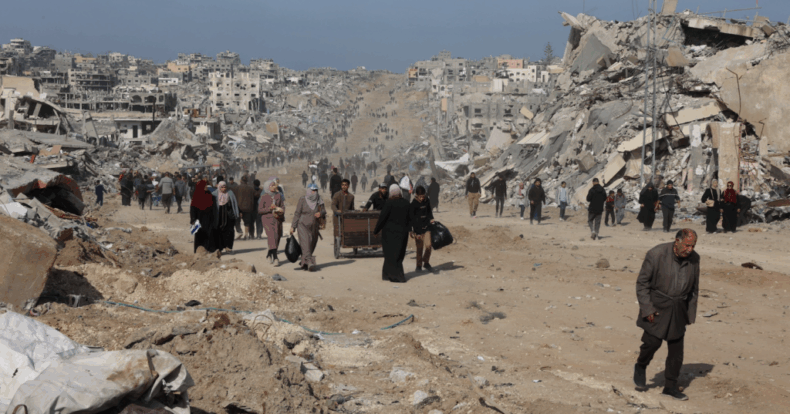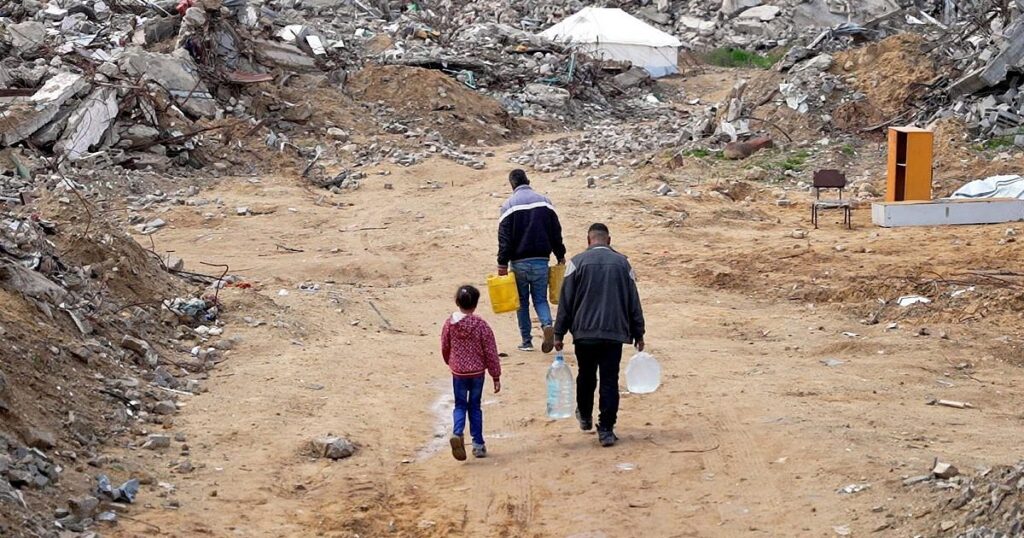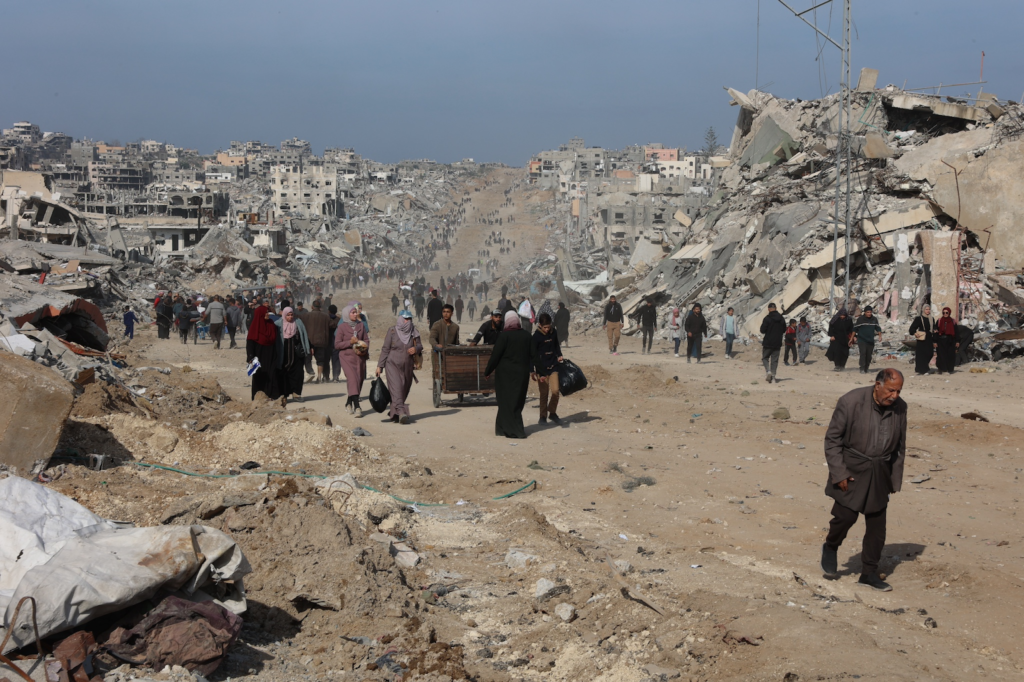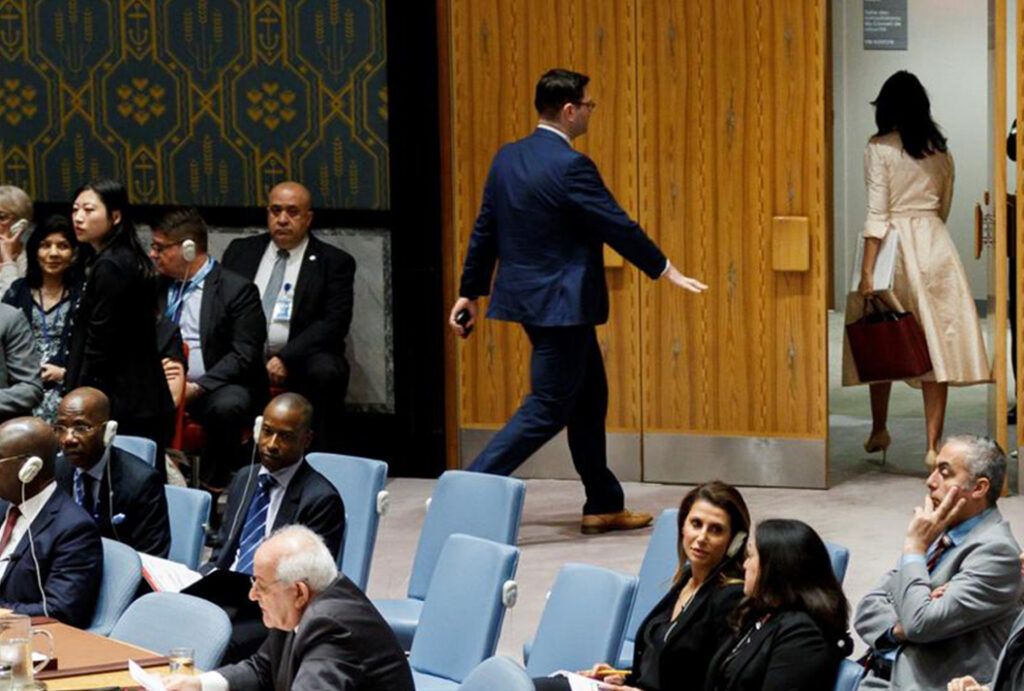Gaza/Israel: International Criminal Court (ICC) Appeals Chamber upholds arrest warrants against Israeli leaders

Gaza/Israel: International Criminal Court (ICC) Appeals Chamber upholds arrest warrants against Israeli leaders
Nicolas Boeglin, Professor of Public International Law, Faculty of Law, University of Costa Rica (UCR). Contact: nboeglin(a)gmail.com
On April 24, 2025, the Appeals Chamber of the International Criminal Court (ICC) announced two decisions: in the first, it refused to suspend the arrest warrants against Israeli leaders (its current Prime Minister and its now former Minister of Defense); while, in another decision, it upheld both arrest warrants and accepted part of the appeal filed by Israel against this same decision of the Pre-Trial Chamber regarding the ICC’s jurisdiction.
This is the response of the Appeals Chamber to the battery of arguments of all kinds presented by Israel in an attempt to avoid both arrest warrants, which were confirmed in a decision by a Preliminary Chamber in November 2024, following a request made by the ICC Prosecutor in May of the same year.
The two previously mentioned decisions in brief
The text of both decisions provides details of all types of appeals filed by Israel and demonstrates the extreme care taken by both the Prosecutor and the Pre-Trial Chamber in reaching their decisions in 2024.
This link has the full text of the Appeals Chamber’s first decision from February 24, 2025, which is 15 pages long. It reads (page 3) that:
After deliberation, Renders, by majority, Judge Luz del Carmen Ibáñez Carranza and Judge Solomy Balungi Bossa dissenting, the following
D E C I S I O N
- The appeal of the State of Israel is dismissed as inadmissible;
- The request of the State of Israel for suspensive effect of arrest warrants issued by Pre-Trial Chamber I against two Israeli nationals and “any other legal acts taken by the Court based thereon” is dismissed, as moot; and
- The request of the State of Israel for leave to reply and to reject in limine the Prosecutor’s submissions concerning suspensive effect is dismissed as moot“.
For the original text, please refer to the official ICC link. It should be noted that this decision was taken unanimously by the five members of the Appeals Chamber, stating (page 3) that:
After deliberation, Unanimously, Delivers the following J U D G M E N T
- The State of Israel’s appeal against Pre-Trial Chamber I’s “Decision on Israel’s challenge to the jurisdiction of the Court pursuant to article 19(2) of the Rome Statute” is admissible under article 82(1)(a) of the Statute;
- The State of Israel’s request for leave to reply is rejected;
- Pre-Trial Chamber I’s “Decision on Israel’s challenge to the jurisdiction of the Court pursuant to article 19(2) of the Rome Statute” is reversed and remanded for Pre-Trial Chamber I to rule on the substance of the State of Israel’s jurisdictional challenge;
- The State of Israel’s request for suspensive effect of two arrest warrants issued by Pre-Trial Chamber I and “any other purported exercise of jurisdiction by the Court” is dismissed as moot; and
- The requests of the Office of the Public Counsel for Victims and the European Centre for Law and Justice are dismissed as moot“.
Gaza / Israel

Photo taken from article published in Israel, entitled “Bombing plants, severing pipelines: Israel pushes Gaza water crisis to the brink” (Magazine+972, April 23, 2025 edition, which is recommended reading in its entirety).
Gaza / Israel
In both decisions, the rejection of Israel’s request to suspend arrest warrants against two of its leaders is unequivocal. From this simple point of view, it can be said that Israel’s efforts have failed.
Regarding the second decision of the ICC Appeals Chamber, does this really open up the possibility of a future review of the previous decision that confirmed the arrest warrants issued against two Israeli leaders and three Hamas leaders in November 2024? (We had the opportunity to analyze the scope of this decision at the time – Note 1).
That possibility does not exist because the judges could not go against what was already established and clearly decided in February 2021 by three ICC judges. In its decision of April 24, 2025, the Appeals Chamber accepted that an argument by Israel based on Article 19, paragraph 2 (possibility of filing an appeal) combined with Article 82, paragraph 1, was admissible and that the Pre-Trial Chamber had committed a procedural error in disregarding it. The latter article (see text of the Rome Statute adopted in 1998) reads as follows:
Article 82
Appeals of other decisions
Either party may appeal, in accordance with the Rules of Procedure and Evidence, the following decisions:
- A decision concerning jurisdiction or admissibility;
- A decision authorizing or denying the release of a person under investigation or prosecution;
- A decision by the Pre-Trial Chamber to act ex officio in accordance with Article 56, paragraph 3;
- A decision on a matter that significantly affects the fairness and promptness of the proceedings or their outcome and on which, in the opinion of the Pre-Trial Chamber or the Trial Chamber, an immediate ruling by the Appeals Chamber could materially expedite the proceedings.
Israel has, from the outset, questioned the ICC’s jurisdiction, arguing that international criminal justice has no jurisdiction in Palestine because Israel is not a State Party to the Rome Statute (see official status of signatures and ratifications, including the unusual ‘withdrawal’ of its signature from the Rome Statute in 2002, which can be seen at the bottom of the board). As previously indicated, this argument was clearly rejected in February 2021 by a Preliminary Chamber of the ICC, which considered that Palestine is a State Party to the Rome Statute.
Far from the victory cries that the Israeli press has been quick to use in various headlines since April 24, the Appeals Chamber has at no time “suspended,” “reviewed,” or “annulled,” much less “reformed,” the decision appealed by Israel: in fact, in overturning the previous decision of the ICC’s Pre-Trial Chamber of November 2024, it does not take any decision on the merits, but rather refers the matter back to the latter (the Pre-Trial Chamber), instructing it to incorporate and rule on the arguments relating to its jurisdiction, which Israel had previously submitted to it. In its decision, it states that for the five members of the Appeals Chamber:
64. Accordingly, the Appeals Chamber is of the view that, in light of the preceding considerations, the most appropriate course of action is to reverse the Impugned Decision and remand the matter to the Pre-Trial Chamber for it to rule on the substance of the jurisdictional challenge. The Appeals Chamber notes that it is for the Pre-Trial Chamber to determine the applicable legal basis under article 19(2) of the Statute for addressing Israel’s jurisdictional challenge at the present stage of the proceedings, and to provide any required further instructions on the procedure to be followed.
As is usual in this type of decision concerning Israel, the extreme simplification by the Israeli media (and their local counterparts in a multitude of newsrooms) attempts to convince the Israeli public that Israel’s victory has been total, when the reality is much more nuanced: both arrest warrants remain in force and it is merely a procedural matter that the Preliminary Chamber was ordered to remedy.
A brief overview of the legal context regarding the issue of jurisdiction
Remember that the ICC’s jurisdiction was clearly established in February 2021, when a Preliminary Chamber of the ICC, after a long review that lasted several years, confirmed that international criminal justice has full jurisdiction to examine the situation in the occupied Palestinian territory, Palestine having been a State Party to the Rome Statute since 2015 (see full text of this decision at English): this is without exception of any kind, Gaza being part of the Palestinian territory, as are the West Bank and East Jerusalem.
What the Appeals Chamber considers in its decision of April 24, 2025, is that in rendering its decision in November 2024, which was subsequently appealed by Israel, the Pre-Trial Chamber should have reconsidered all arguments regarding the ICC’s jurisdiction (already resolved in February 2021 and considered res judicata by the three judges of the Pre-Trial Chamber in 2024): a criterion that is clearly debatable (and likely to be the subject of intense debate among legal experts).



The context surrounding this decision
This decision by the ICC Appeals Chamber comes in the midst of Israel’s destructive offensive, which, in just over a month since the Gaza, including 595 children and 308 women. The utter senselessness of Israel’s military actions since March 18, 2025, and its relentless persecution of a civilian population deprived of everything should lead to the expansion of the list of those responsible in Israel for such atrocities, who must be held accountable for their actions before international criminal justice. It is worth recalling that almost five years ago, in July 2020, following initial investigations by the ICC Prosecutor’s Office, it was leaked to the Israeli press that the military authorities were preparing a secret list of hundreds of members of their security forces involved in acts that could be classified as war crimes or crimes against humanity (see article published on the same date in The Times of Israel).
We refer our esteemed readers to the latest report dated April 23, 2025, which states that:
Between 7 October 2023 and 22 April 2025, the MoH in Gaza reported that at least 51,266 Palestinians have been killed and 116,991 Palestinians injured. This includes 1,890 people killed and 4,950 injured since the escalation of hostilities on 18 March 2025, according to MoH. On 17 April, MoH published the breakdown casualties in Gaza between 18 March and 17 April. Of the 1,691 people killed, 595 were children, 308 women, 105 elderly and 683 men. Among the 4,464 people injured, 1,610 were children, 842 women, 225 elderly and 1,787 men, MoH reported.
A comparison of this situation report dated April 23 with the previous one dated April 15 (see text) shows that the Israeli army carried out sustained deadly actions without interruption during the week when part of the Christian world was celebrating Easter. The latest report on the situation in Gaza by the United Nations (see report as of April 30, 2025) documents the sickening cruelty against the Palestinian civilian population, with more than 2,300 fatalities since Israel unilaterally broke the ceasefire agreed with Hamas on March 18.
On April 3, before the members of the United Nations Security Council, the High Commissioner for Human Rights personally reported on the humanitarian catastrophe in Gaza, with a total blockade by Israel of humanitarian aid that had been in place for more than a month at that time (see video of his speech, posted by an African news outlet, given the lack of coverage of his speech in the US and European media). At the time of writing (April 26), the population of Gaza has been deprived of humanitarian aid by Israel for almost two months, without any mention of this in the mainstream international media. Since March 2, nothing has entered Gaza (see report by Human Rights Watch).
Note that in February 2025, a joint report by the World Bank and the European Union (EU) – see report – estimated that the losses and damage caused in Gaza by Israel since the afternoon/evening of October 7, 2023, amount to more than US$49 billion (see table and explanations on pp. 3-4). It states (page 25) that:
The assessment estimates around US$19.1 billion of economic and social losses incurred due to the conflict (see Figure 3). The sectors with the highest estimated losses are health with US$6.3 billion, education with US$3.2 billion, commerce and industry with US$2.2 billion, social protection at around US$1.4 billion, and agriculture at US$1.3 billion. The impacts, damages, and losses are thus greatest in housing with US$16.3 billion, commerce and industry with US$8.1 billion, health with US$7.6 billion, education with US$4.1 billion, and transport with US$2.9 billion.
It should be noted that, just as Israel’s highest authorities branded the ICC judges “anti-Semitic” in November 2024 (see press release), in January 2024 they considered a first ruling handed down by another international jurisdiction (the International Court of Justice / ICJ) to be totally biased on the grounds of the ”anti-Semitism” of some of its members (see note from The Guardian): This is an angry reaction by Israel every time its diplomacy fails, and it no longer makes much of an impression (except in the case of a few small political circles that gravitate around the White House in the United States and other smaller circles active in some capitals).
In conclusion
Beyond the ease with which the terms “anti-Semitic” and “anti-Semitism” are used in Israeli government circles and related circles, these two decisions by the ICC Appeals Chamber are likely to be commented on by legal experts.
The United Nations Security Council has decided to refer the situation in the West Bank and Gaza to the International Court of Justice (ICJ) on April 28. , before another international court also located in The Hague (the ICJ), some 40 states and four international organizations will have the opportunity to demonstrate to the ICJ judges the importance of the legal rules that bind all UN member states, this time in the context of advisory proceedings initiated by Norway in October 2024, which we had the opportunity to analyze at the time (Note 2). On behalf of Latin America, the following will appear before the judges of the ICJ in order of appearance (see program released on April 23 by the ICJ): Colombia, Bolivia, Brazil, Chile, Mexico, and Panama.
A long list of states and international organizations invited to address the 15 members of the ICJ does not include Israel, which has deemed it unnecessary to present its arguments before the ICJ in The Hague in this case. While some analysts and commentators may view this as a minor procedural detail, Israel’s omission confirms that the narrative of Israel (and its allies) seeking to legally justify Israel’s actions in Gaza and the rest of the occupied Palestinian territory—based on considerations and “legal arguments” deployed by its diplomatic apparatus (as well as through a large number of analysts, columnists, and “experts” in various entities and latitudes…)—does not stand up to debate before the judges of the ICJ. On this very point, we had the opportunity to point out a very similar omission in the previous ICJ advisory proceeding that concluded on July 19, 2024, with a total of five modest pages submitted by Israel as its sole defense before the ICJ judges (Note 3).
Returning to international criminal justice and the effects of the arrest warrants issued by the ICC, for the official ceremonies in Rome relating to the funeral of His Holiness Pope Francis on April 26, the Prime Minister of Israel did not travel to Rome, the city where the Rome Statute was adopted in 1998, nor did the President of Russia, also subject to an arrest warrant issued by a Pre-Trial Chamber of the ICC for war crimes committed in Ukraine (see official statement from the ICC on this arrest warrant of March 17, 2023).
Notes
Note 1: See BOEGLIN N., “Gaza / Israel: ICC arrest warrants against the Prime Minister and (former) Minister of Defense of Israel and against a Hamas leader. Scope and prospects,” November 21, 2024. Text available here.
Note 2: See BOEGLIN N., “Gaza / Israel: ICJ prepares public hearings while UN Human Rights Council adopts resolution on obligation to prevent genocide,” April 11, 2025. Text available here.
Note 3: At that time, we took the liberty of pointing out that in July 2024, when the ICJ’s advisory opinion on the colonization and illegal occupation of the occupied Palestinian territory was made public, that:
In this regard, the 292 pages of Palestine’s brief (see text at English).
With regard to Israel, it should be noted that, despite being able to do so, Israel chose not to participate in the oral hearings, a detail that the US judge at the ICJ considered necessary to point out in her separate statement (see text), specifying that:
4. It also is unfortunate that Israel did not meaningfully participate in these advisory proceedings. Israel submitted a five-page written statement to the Court, together with annexes. It chose not to participate in the oral proceedings, despite the fact that up to the opening of those proceedings, the Court had reserved three hours for Israel to present its views — the same amount of time allocated to the observer State of Palestine, and six times the amount allocated to any other participant. This is an advisory proceeding, and no State was under an obligation to participate, including Israel. Israel’s participation in the oral proceedings, however, would have benefited the Court. Conversely, the failure of a State to participate cannot prevent the Court from fulfilling its responsibilities in replying to an advisory request.
Please refer to BOEGLIN N., “Prolonged occupation and illegal Israeli colonization of Palestinian territory: notes on the recent advisory opinion of the International Court of Justice (ICJ),” July 19, 2024. Text available here.
Navigate articles



